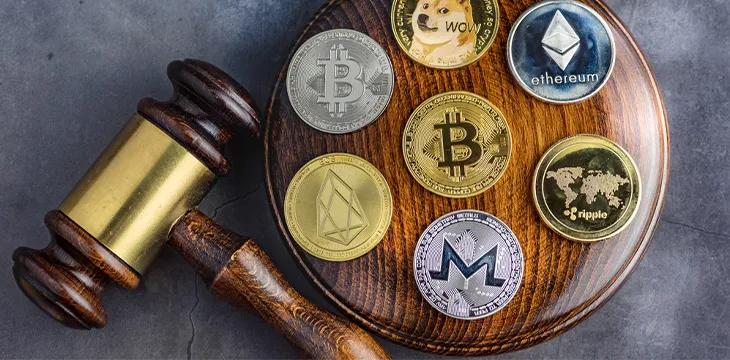|
Getting your Trinity Audio player ready...
|
This post originally appeared on ZeMing M. Gao’s website, and we republished with permission from the author. Read the full piece here.
Short answer: it may harm ‘crypto’ but not blockchain.
A U.S. federal judge of a District Court in New Hampshire ruled today, November 7, 2022, that crypto startup LBRY violated securities laws by selling its native LBC tokens without registering with the U.S. Securities and Exchange Commission (SEC).
As reported by CoinDesk, LBRY founder Jeremy Kauffman made the following statement in an email:
“The SEC vs LBRY case establishes a precedent that threatens the entire U.S. cryptocurrency industry. Under the SEC vs LBRY standard, almost every cryptocurrency, including Ethereum and Doge, are securities. The future of cryptocurrency in the U.S. now rests in with an organization even worse than the SEC: the United States Congress.”
Kauffman’s statement is meant to be a warning about the case’s having a broader negative impact on the industry. But the problem is that he is simply telling the truth about almost every ‘cryptocurrency’ being a security.
The LBRY case indicates that the SEC is trying to enforce the security laws against ‘crypto’ coins and tokens.
Meanwhile, the more significant case is the pending SEC v. Ripple. Based on the law, Ripple’s substantive arguments that XRP is not a security are quite week. If Ripple wins the case, it could win on a nonsubstantive procedural ground. Ripple has argued that SEC failed to give them ‘fair notice,’ and also that the SEC’s act is selective prosecution, and the court has allowed such arguments to proceed.
But one should hope the case is decided on the substantive law, one way or the other. If the Ripple case is decided on a nonsubstantive procedural ground, it would be a true loss to the industry because it would have no broader teaching and guidance to the industry.
The SEC’s actions may have an impact on the cryptocurrency industry as it stands now, but in the longer term will clear up the air for better technologies and products to grow.
The real problem
The problem is not that the law is too strict, but that the ‘crypto’ industry has got on a wrong direction too far by turning the original Bitcoin, one of the greatest inventions ever, into a multitrillion-dollar gambling of speculations over other people’s speculations.
The wrong direction was not a necessary result of the technology itself but an unfortunate result of dubious human motivations.
And as a result of the misguided developments, many now mistakenly equate blockchain with ICOs and ITOs, or at least think that without ICO and ITO, there would be very little technological development. Therefore, people worry that if SEC cracks down on too many ‘cryptocurrency’ projects, it will choke off the blockchain, DLT, ‘crypto,’ and DeFi advancements.
But the opposite is true. The speculative nature of the ‘crypto’ world is the biggest distraction and suffocation of the real technological development.
The entire Bitcoin/blockchain/DLT/’crypto’ space has gone astray and wasted a decade of time and hundreds of billions of dollars to build on the wrong blockchains and ineffective infrastructure, business models, and the subsequent ecosystems. The field lacks no talents and great ideas of use cases but has generally missed what was envisioned by the inventor of the Bitcoin blockchain, and hasn’t come to understand that those great use cases will not happen in large scales without a unified base layer blockchain that has unbounded of scalability, sub 1/100 cent transaction fees, true PoW without recentralization, and eventual integration with the IPv6 Internet.
As a result, very little resources have been directed to fundamentally sound infrastructures and applications because who wants to do it the hard way when you can freely print your own money by issuing coins and tokens.
For more in-depth analyses, see:
The New Internet & Blockchain;
The necessary scalability of Layer-1 on blockchain;
One blockchain as the base layer of IoV.
Also see an earlier article on the topic of the SEC and securities laws: Most cryptos are securities according to the Howey test.
The SEC itself doesn’t show signs of understanding the potential of the original Bitcoin blockchain either. While it is trying to enforce the existing law with certain earnestness, it’s likely that the agency also second-guesses what it is doing: perhaps we are unduly harming an otherwise useful technology?
They might, if they do it blindly. But if more people see there is a far better direction for the industry to move, the law can be helpful even.
Watch: The BSV Global Blockchain Convention panel, Law & Order: Regulatory Compliance for Blockchain & Digital Assets

 07-14-2025
07-14-2025 





